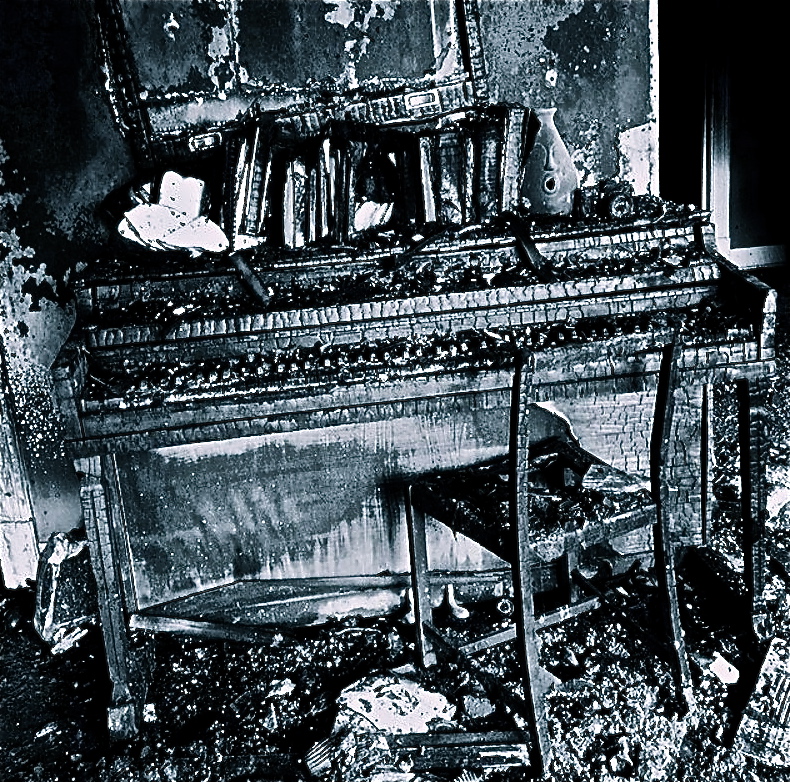Displacement
Adie Kleckner
 I recently walked through my friend’s house a week after it had caught fire. The plaster crumbled from the walls. The windowpanes had cracked in the heat, and smoke had stained the frames. I had lived in that house for two years awhile back, but the fire had made what was once familiar unrecognizable.
I recently walked through my friend’s house a week after it had caught fire. The plaster crumbled from the walls. The windowpanes had cracked in the heat, and smoke had stained the frames. I had lived in that house for two years awhile back, but the fire had made what was once familiar unrecognizable.
The rooms are now only alive in the memories of the people who once filled them.
The summer I was 8 years old, my mother painted my room. It was supposed to be a dark blue, but when she stated painting, she let some of the white show through in layers of cumulous clouds. At night I fell asleep to headlights arcing across the walls/sky like searchlights. She had made what was familiar—four walls—other than what it was.
The Jewish holiday of Sukkot—The Feast of Tabernacles—remembers the forty years of the Exodus. Families build shelters of plywood and cardboard. For a week these shacks are the venue for prayer and shared meals. During Sukkot, everyone is homeless.
I am looking for a house to rent. I have toured houses that are empty, some that are still lived in, others are piled with boxes. Each of these has not just been made habitable; they have been made into a temple, a resting place. But even Solomon’s Temple was destroyed.
After we sold the house I grew up in, the new owner painted the walls of my room white. Even now, the walls of my friend’s house has been reframed, the windows replaced.
The opening prayer of Sukkot both praises God, but also commands us to accept our displacement. We must dwell in sukkah:
Baruch atah Adonai, Eloheinu Melech haolam, asher kid'shanu b'mitzvotav v'tzivanu leisheiv basukkah.
Our praise to You, Eternal our God, Sovereign of all: You hallow us with Your mitzvot and command us to dwell in the sukkah.